UN’s recognition of safe and clean drinking water and sanitation as a human right recently hit a decade and this makes us ponder even more about the situation in the Sundarbans after the Amphan cyclone. The destruction caused by Amphan in the Sundarbans poses a massive threat to the very right to safe and clean drinking water and sanitation of the people living there. Sundarbans, a UNESCO World Heritage Site, has an acute shortage of potable water and sanitation and its people are being deprived of their basic needs to a very high degree.
Since the Amphan cyclone, water and sanitation have become a challenge for locals living in the Sundarbans. Being forced to live in shacks with no potable drinking water and decent washrooms due to their houses being ripped apart by the cyclone, has forced families to live in extreme conditions where they have to defecate in open areas and buy packaged water which costs them around sixty to a hundred rupees per week. Saline water has gushed into the ponds and tube wells in the village and has rendered most of the tube wells irreparable. The tube wells that had not been repaired properly after Aila and Bulbul have now become useless. Women have to cycle or walk everyday for over 30 minutes away from their homes to get water.
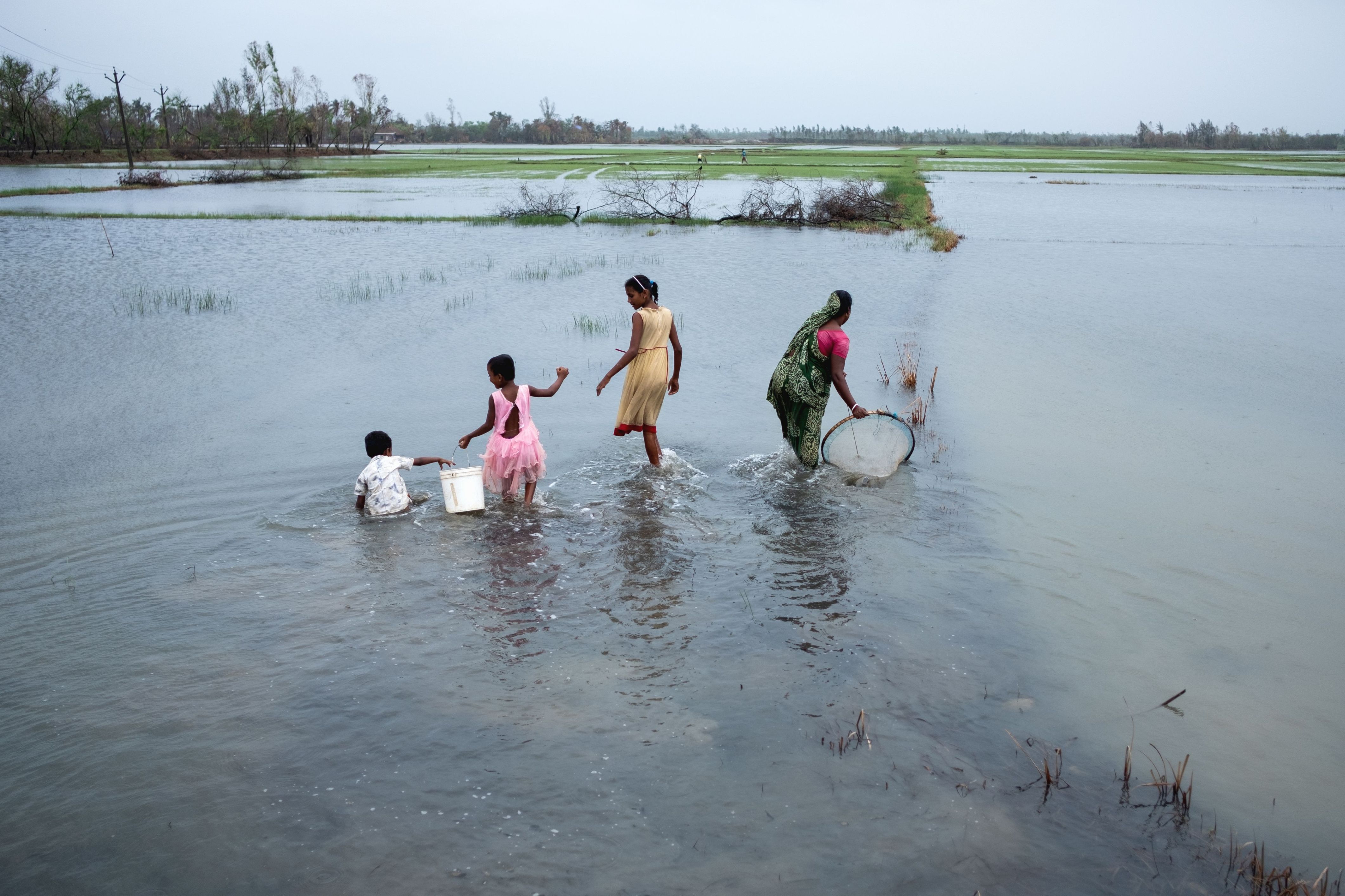


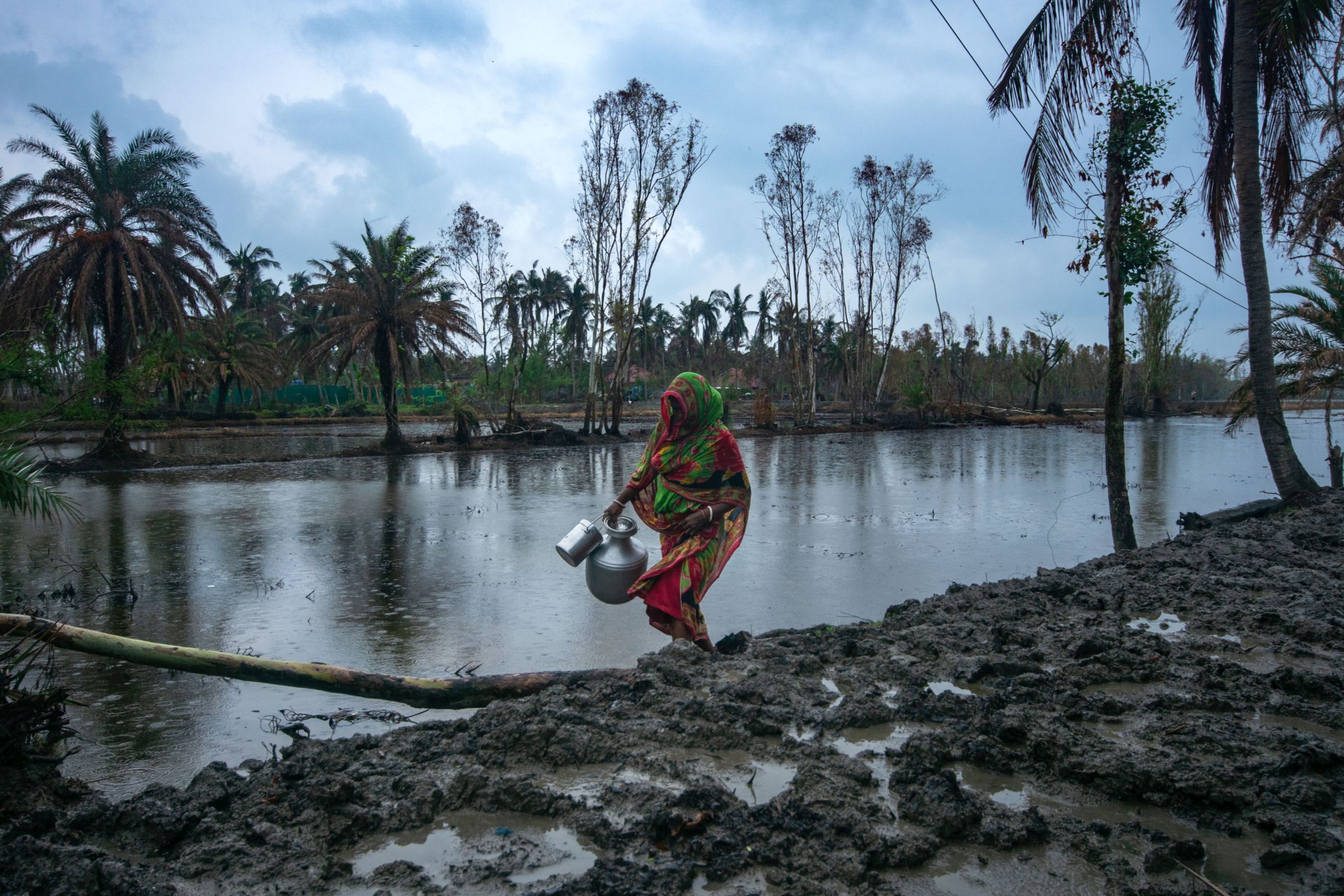
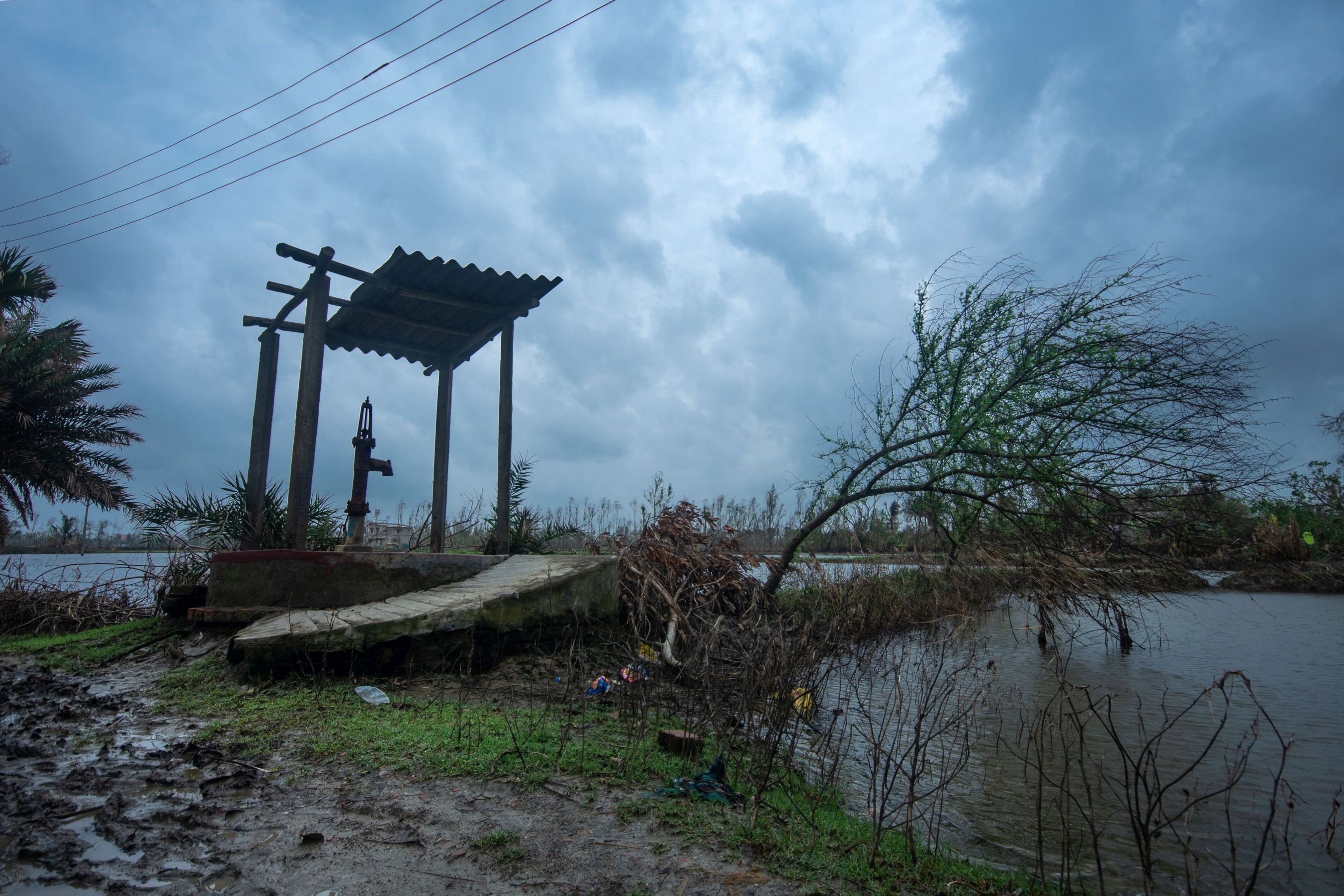
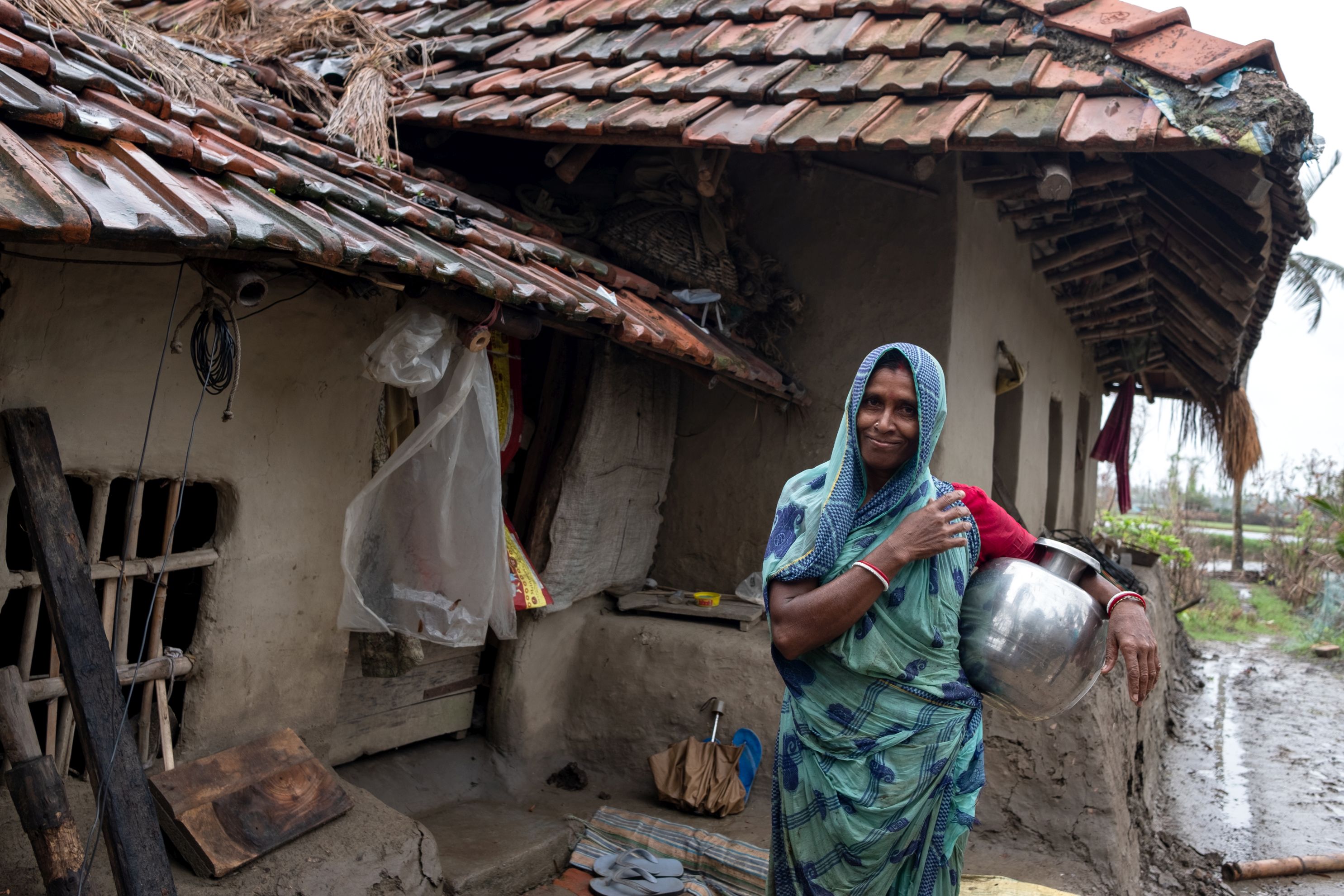
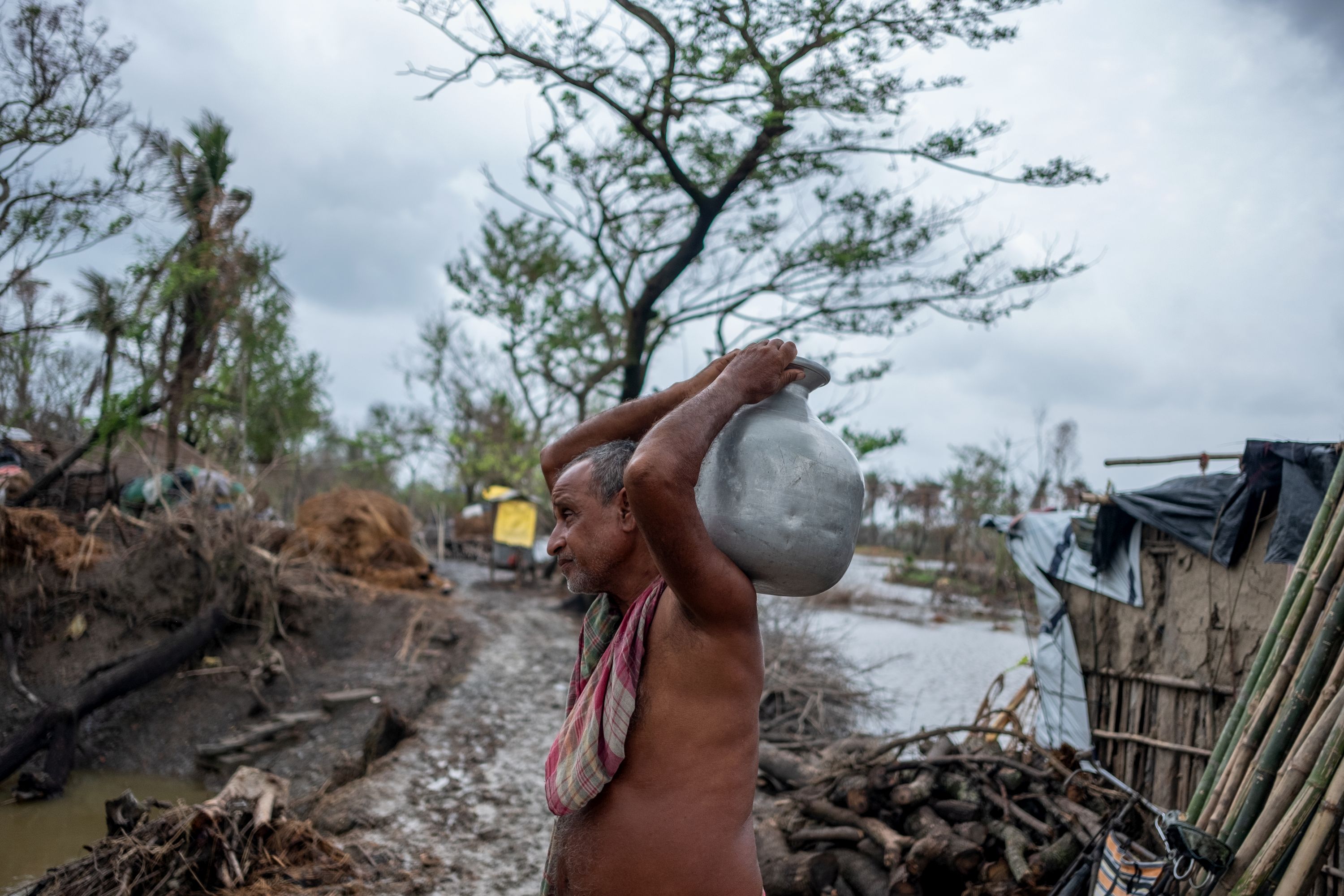
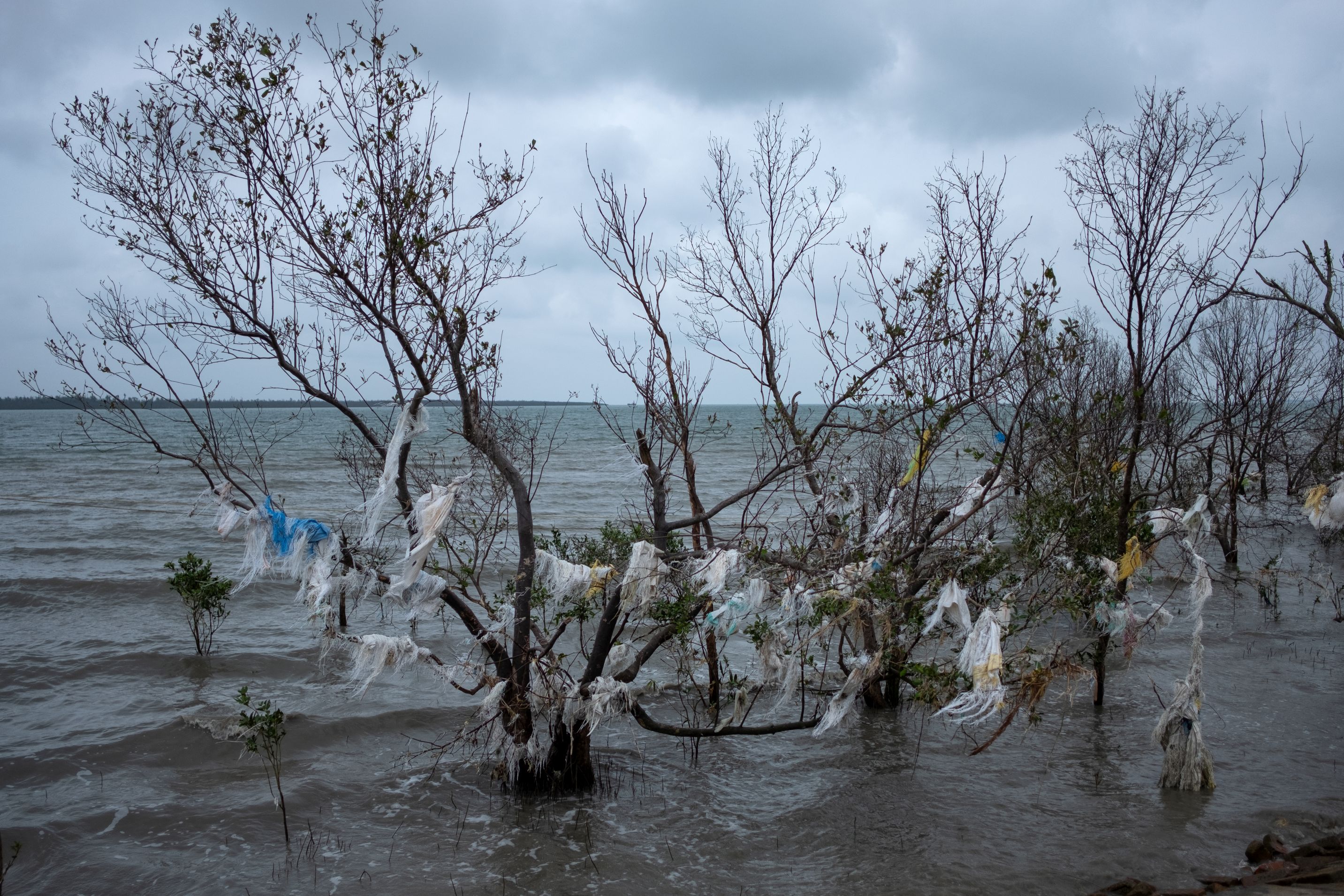
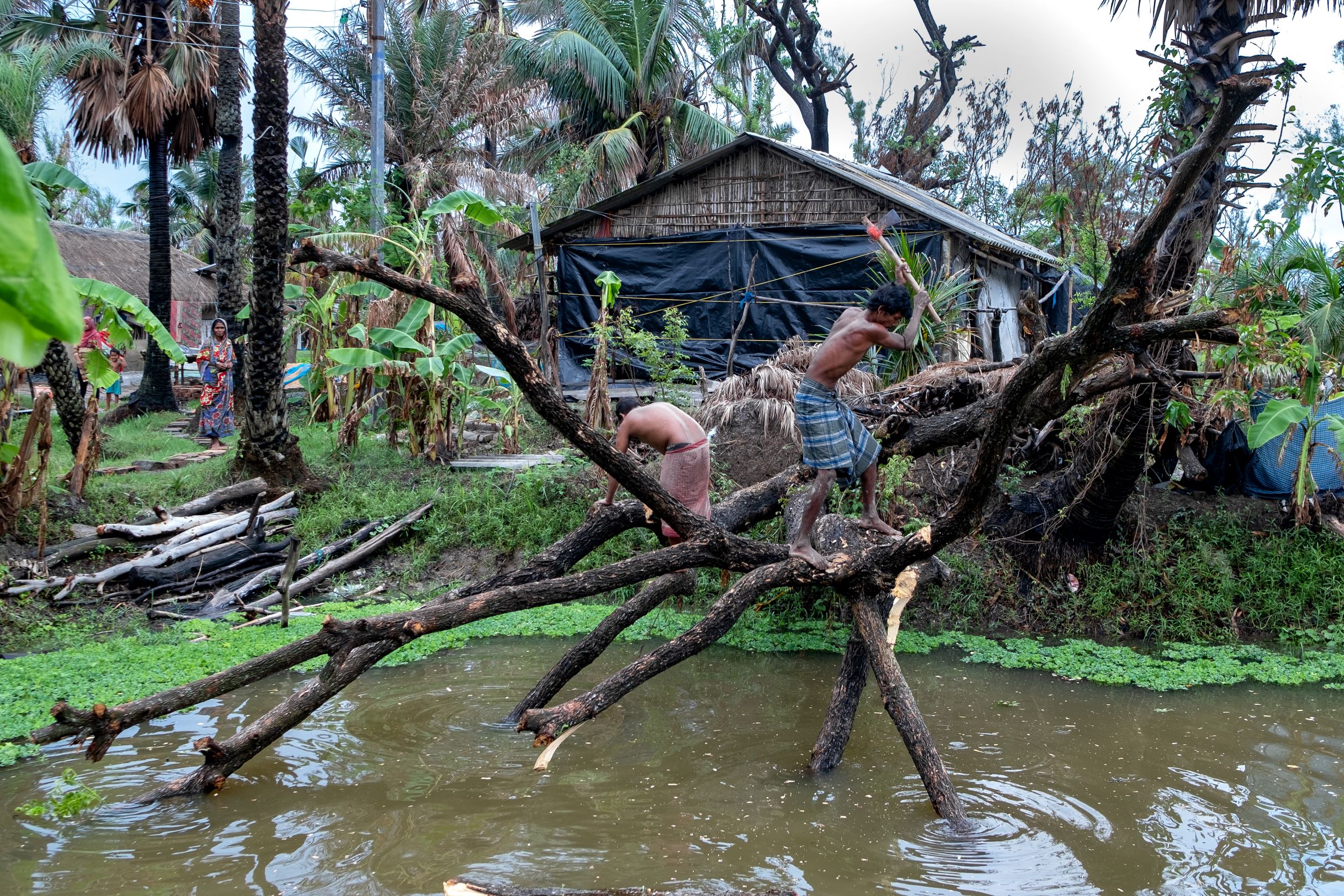
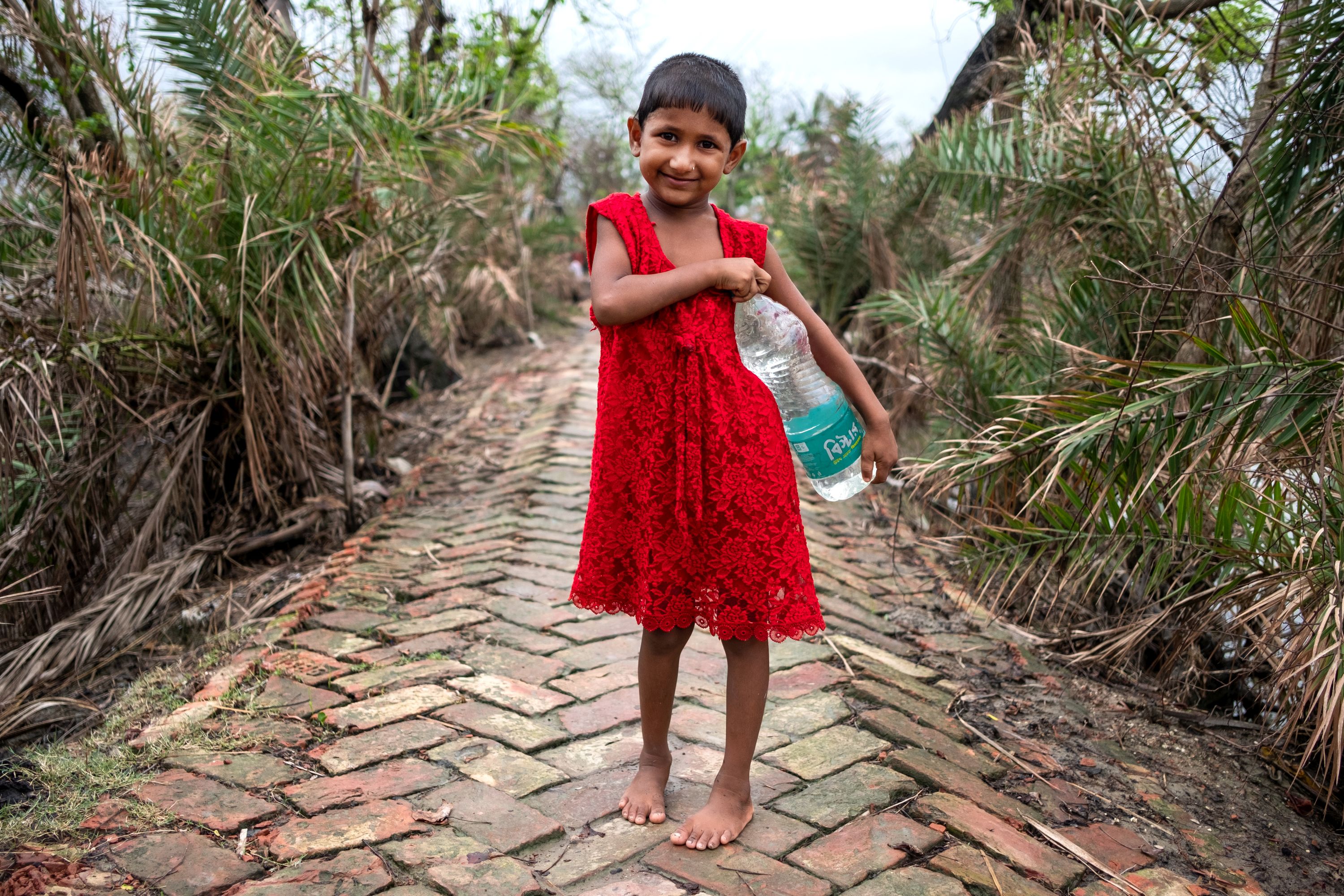
Clean water and sanitation are a must for any individual to survive. Locals in the Sundarbans today are fighting for survival as Amphan with the additional burden of the coronavirus pandemic has made life extremely difficult for them. Paying for packaged drinking water due to no source of clean water and living in unsanitary conditions while being quarantined or providing for those who have been quarantined is a dreadful situation to be in.
People in the Sundarbans are helping each other and trying to rebuild their life with scarce resources. Having to find clean water to drink is a daily struggle for locals and is a huge barrier towards rebuilding life and livelihood. It is imperative that we contribute in whatever little way we can to help them.













